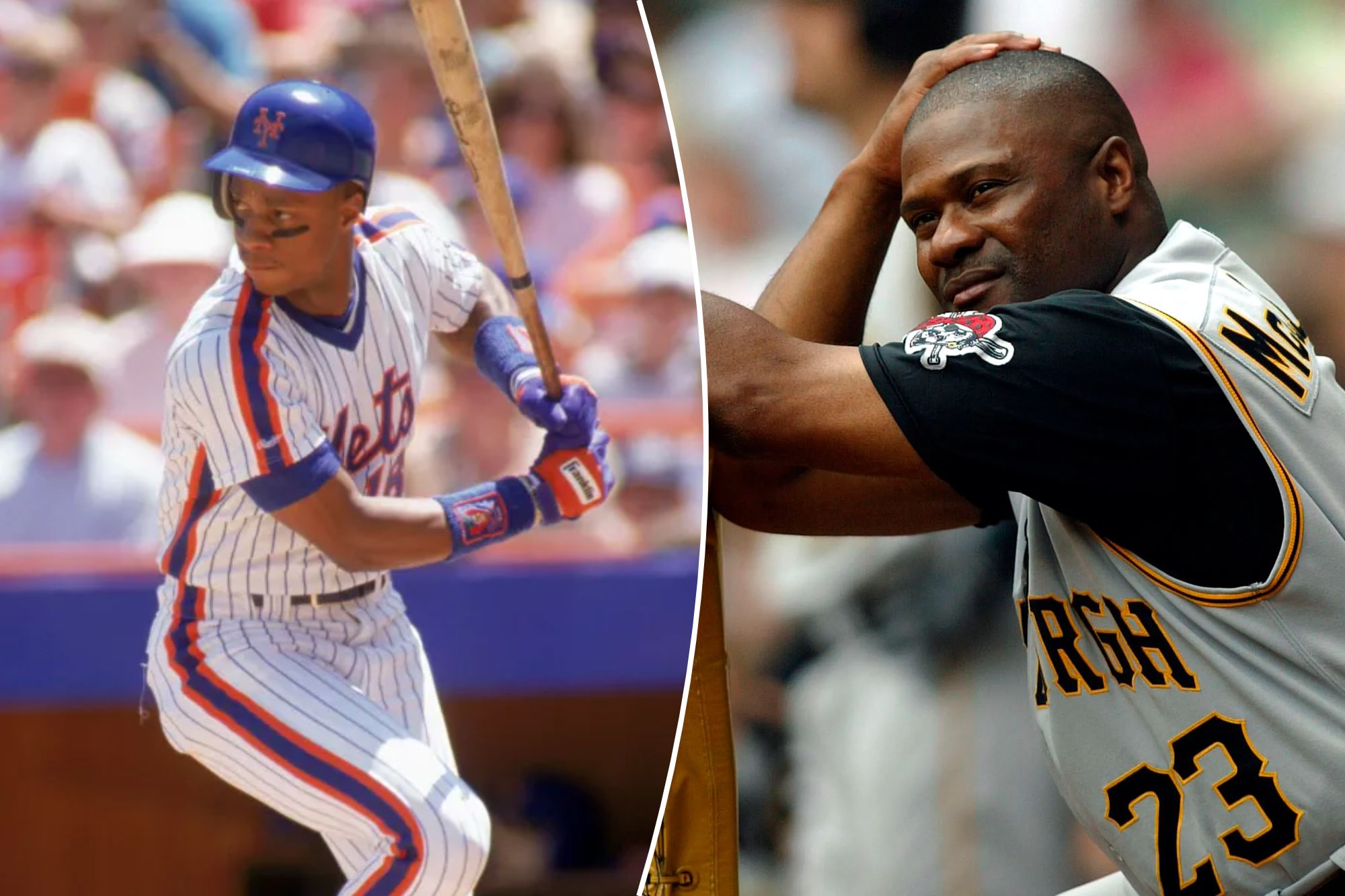
Darryl Strawberry, able to travel again and feeling better after a March heart attack, took a look back at his storied, eventful and too-short tenure in Queens with a love that soon will be immortalized.
“I will always be a Met, no matter how people look at it,” Strawberry said on a Zoom news conference Monday ahead of his No. 18 being retired on June 1 at Citi Field. “Those eight years were the greatest years of my career, and I will always cherish those years.”
Those years — and the nine that followed, which included three World Series rings with the Yankees — would not have been possible if he quit baseball when he wanted to.
Back in 1981, Strawberry was a 19-year-old who was one year removed from being the top overall pick in the draft out of Crenshaw High School in Los Angeles, where he was one of the most hyped prospects ever; where his coach had called him “The Black Ted Williams” for a story in Sports Illustrated; where he played predominantly with black teammates.
And then he was sent to Class-A Lynchburg (Va.), “Deep down in the South,” Strawberry said.
He was called “boy” and heard racial taunts from fans.
“I hated that year. I hated Lynchburg,” Strawberry said. “I hated the fans and all the things that were being said and all of the comments or the racial things that were being said to me as I kept running back to the dugout.
“I just remember [manager Gene Dusan] used to tell me: ‘Don’t look up there.’ ”
But Strawberry heard the insults, and the early production was not there.
“I think [Dusan] felt like I would have took my Louisville Slugger and went up there and started eliminating those folks,” Strawberry said, laughing. “And then finally, Big Mac came down and came to the park, and I was finally happy.”
“Big Mac” is Lloyd McClendon, who arrived in Lynchburg late after having broken his wrist during spring training.
Dusan knew Strawberry was struggling, as a person and player, and so he spoke with the older McClendon, who would go on to manage for eight years in the majors.
“I remember coming into the manager’s office, and he said, ‘You have a roommate,’” McClendon said, smiling. “I said, ‘What are you talking about?’ I said, ‘I’m married.’
“He said, ‘That’s good, get a two-bedroom apartment because you have a roommate. His name is Darryl Strawberry. He will be rooming with you.’ ”
Strawberry gained a friend and a black teammate with whom he could relate.
He had an outlet, but the fans did not ease up on Strawberry, who hit .255 with 13 home runs in 123 games with Lynchburg.
“I just really sucked, and I really hated that year,” Strawberry said. “And I just talked to the Mets. I said, ‘I think I made a wrong decision. I don’t want to play baseball.’”
To the enormous benefit of the player and the team, the Mets persuaded Strawberry to keep going. They told him to give it one more year.
“Then I went to the Texas League,” Strawberry said. “Gino [Dusan] was there in the Texas League as the manager, and I went on to hit 34 home runs that year and stole 45 bases that year. Then I really realized that I arrived as a ball player.”
The legend of Strawberry will be raised to the Citi Field rafters early next month, when he will say thank you to Mets fans he loves — and thank you to former teammates and coaches who helped him reach this moment.
“I’m really looking forward to it,” said McLendon, who was part of the deal that sent Tom Seaver back to the Mets. “I’ll try to hold back tears.”














